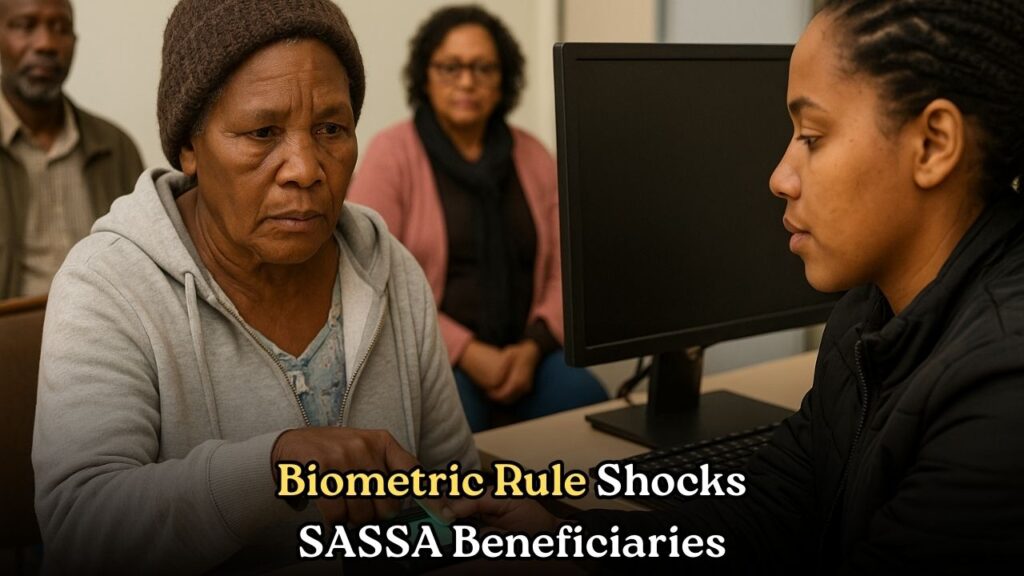SASSA Implements Mandatory Biometric Checks for Grant Recipients: In a significant move aimed at enhancing the security of social grants, the South African Social Security Agency (SASSA) has initiated mandatory biometric checks for grant recipients. This step is a crucial part of SASSA’s ongoing efforts to ensure that the right individuals receive the financial support they are entitled to. By incorporating biometric technology, SASSA aims to curb fraud and streamline the process of grant distribution. This initiative is expected to protect both the integrity of the system and the beneficiaries, ensuring that funds reach those who genuinely need them.

Biometric Checks: A Necessary Step for Security
The introduction of biometric checks by SASSA is seen as a necessary step towards bolstering the security of South Africa’s social grant system. With rising concerns about identity theft and fraudulent activities, this move is expected to significantly reduce the risks associated with grant distribution. Biometric verification, which includes fingerprint and facial recognition, provides a highly secure method of confirming a recipient’s identity. This technology ensures that grants are disbursed only to verified individuals, thereby eliminating the chances of fraudsters exploiting the system. SASSA’s initiative aligns with global trends where biometric technology is increasingly being utilized to enhance service delivery and security. By adopting these advanced measures, SASSA not only protects the beneficiaries but also strengthens public trust in its operations.
How Biometric Checks Will Impact Grant Recipients
The implementation of mandatory biometric checks is set to have a profound impact on grant recipients across South Africa. For many, this system will simplify the process of accessing their grants, as biometric verification is quick and reliable. Recipients will no longer need to remember PINs or carry identification documents, as their biometric data will serve as their identity proof. However, this transition requires cooperation from all involved parties. SASSA has taken steps to ensure that the process is as seamless as possible, providing support and resources to assist grant recipients in adapting to the new system. While there may be initial challenges, especially in remote areas with limited access to technology, SASSA is committed to addressing these issues to ensure inclusivity and accessibility for all beneficiaries.
Challenges and Solutions in Implementing Biometric Verification
While the move to biometric verification is a positive step, it does come with its set of challenges. In a country as diverse as South Africa, ensuring that all recipients have equal access to the necessary technology is a significant hurdle. Many rural areas may lack the infrastructure needed for biometric systems to function effectively. To address this, SASSA is working on deploying mobile biometric units that can reach remote locations, ensuring that no recipient is disadvantaged. Additionally, there are concerns about data privacy and the security of biometric information. SASSA has assured the public that stringent measures are in place to protect personal data, ensuring compliance with the Protection of Personal Information Act (POPIA). By tackling these challenges head-on, SASSA aims to create a robust and secure system for grant distribution.
The Future of Social Grants with Biometric Technology
The future of social grants in South Africa looks promising with the integration of biometric technology. As SASSA rolls out these measures, the agency is paving the way for a more efficient and secure grant distribution system. This initiative not only safeguards the interests of the recipients but also enhances the overall efficiency of the agency’s operations. By reducing instances of fraud and identity theft, SASSA can allocate resources more effectively, ensuring that funds are directed towards improving the lives of South Africa’s most vulnerable citizens. As the system matures, it is expected that biometric technology will lead to further innovations in how social services are delivered, ultimately contributing to a more equitable and just society.




